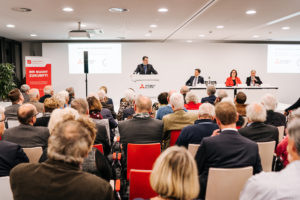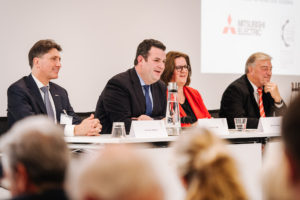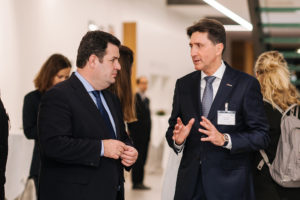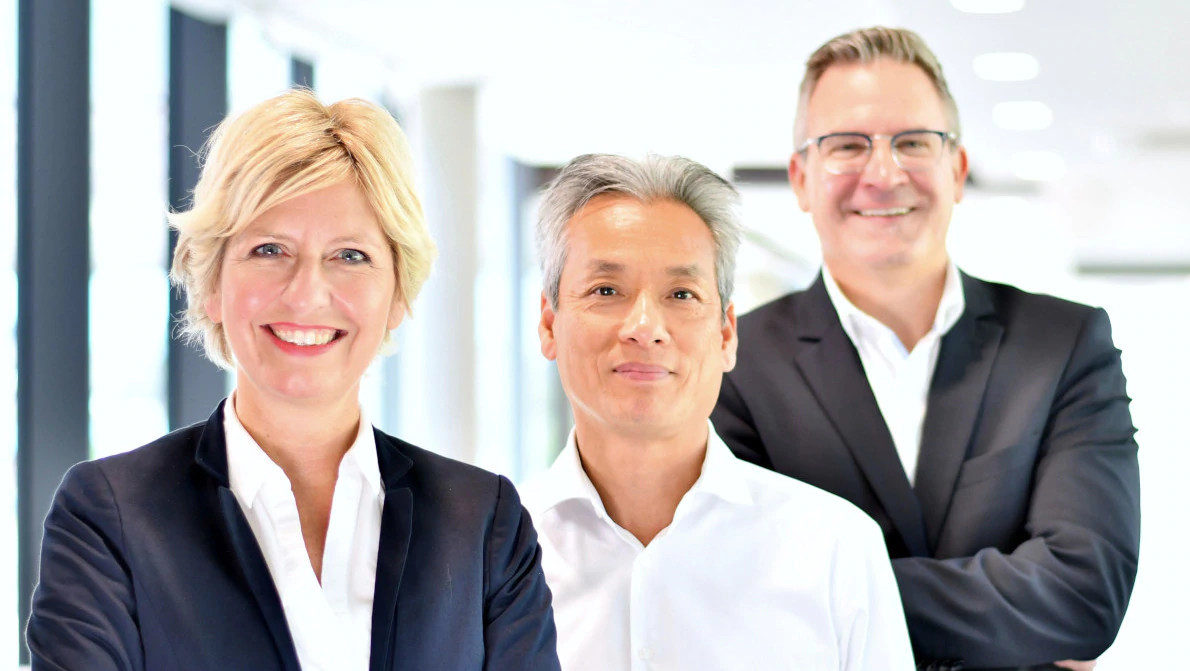Hubertus Heil visits the Industrial Museum Cromford and the German Branch
From industrial work to the digital world.
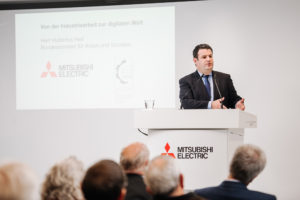
Hubertus Heil, Federal Minister of Labour and Social Affairs, visited Ratingen on 19 November 2019 at the invitation of the friends and sponsors of the Cromford Industrial Museum, where he visited the Cromford Industrial Museum and then gave a lecture in the German Branch of Mitsubishi Electric on the subject of “From industrial work to the digital world” to over one hundred invited guests.
During his visit to the Cromford Industrial Museum, Federal Labour Minister Heil gained an impressive insight into the beginnings of industry. The Cromford textile factory in Ratingen was founded in 1783 and is considered the first factory on the European mainland. Today it is an LVR Industrial Museum branch.
The Wuppertal industrialist Johann Gottfried Brügelmann revolutionized the world of work more than two centuries ago with his textile factory. Even today, society is approaching a new trend-setting change, the fourth industrial revolution. Mitsubishi Electric (also a member of the top-class board of trustees of the Förderverein) is a global technology company that also supports the association here in Germany. The company is contributing its broad technological expertise to push forward and contribute to the digitalization of industry, sustainable and safe mobility, energy-efficient infrastructure and comfortable, climate-neutral living spaces.
During his visit to Ratingen, Federal Labour Minister Heil thus gained a comprehensive insight into industrial development from its beginnings to future technologies, which at the same time represented a symbolic bridge to his lecture. “The German economy is in the most elementary transformation since the beginning of industrialization. Digitalisation confronts both employers and employees with major challenges. It is important that we manage change in such a way that everyone can benefit from it. To achieve this, we must make wise use of one of Germany’s greatest achievements, the social partnership. With the Qualification Opportunities Act, I have laid the first stone to ensure that today’s workers can also do tomorrow’s work. With the Work of Tomorrow Act, a second step will soon follow, with which I will provide a strong impulse for further training and qualification in structural change,” said Federal Labour Minister Hubertus Heil during his visit to Ratingen.

“The German economy is in the most elementary transformation since the beginning of industrialization. Digitalisation confronts both employers and employees with major challenges. It is important that we manage change in such a way that everyone can benefit from it. To achieve this, we must make wise use of one of Germany’s greatest achievements, the social partnership. With the Qualification Opportunities Act, I have laid the first stone to ensure that today’s workers can also do tomorrow’s work. With the Work of Tomorrow Act, a second step will soon follow, with which I will provide a strong impulse for further training and qualification in structural change.”
Federal Minister of Labour and Social Affairs Hubertus Heil during his visit in Ratingen.
Following his lecture, Federal Labour Minister Heil entered into a direct dialogue with the invited guests during an animated discussion round.
